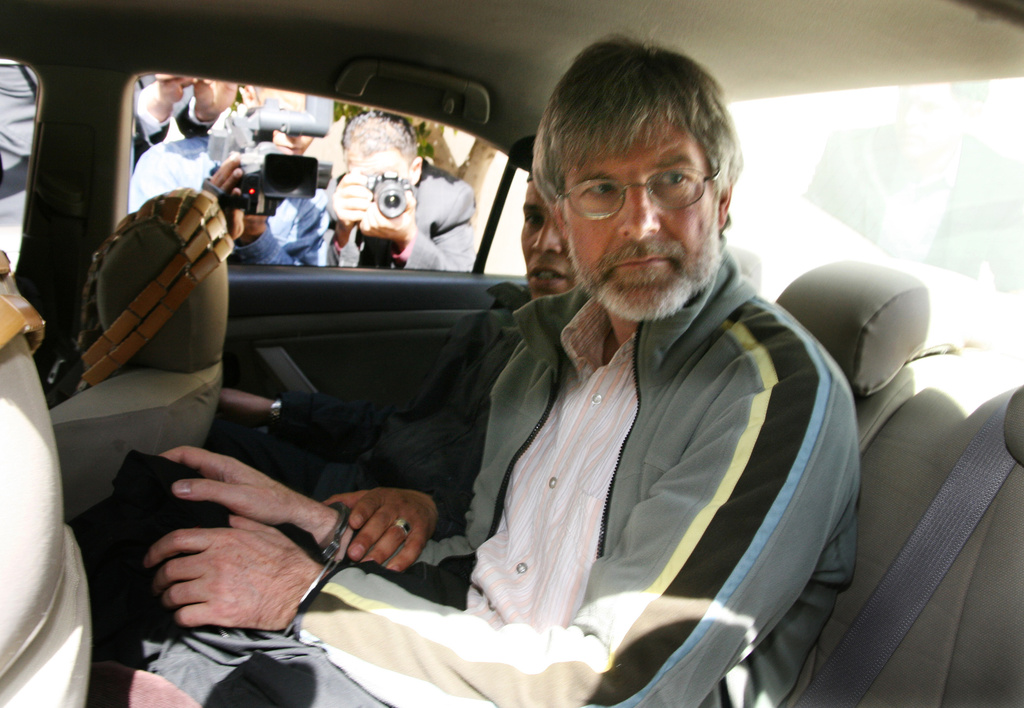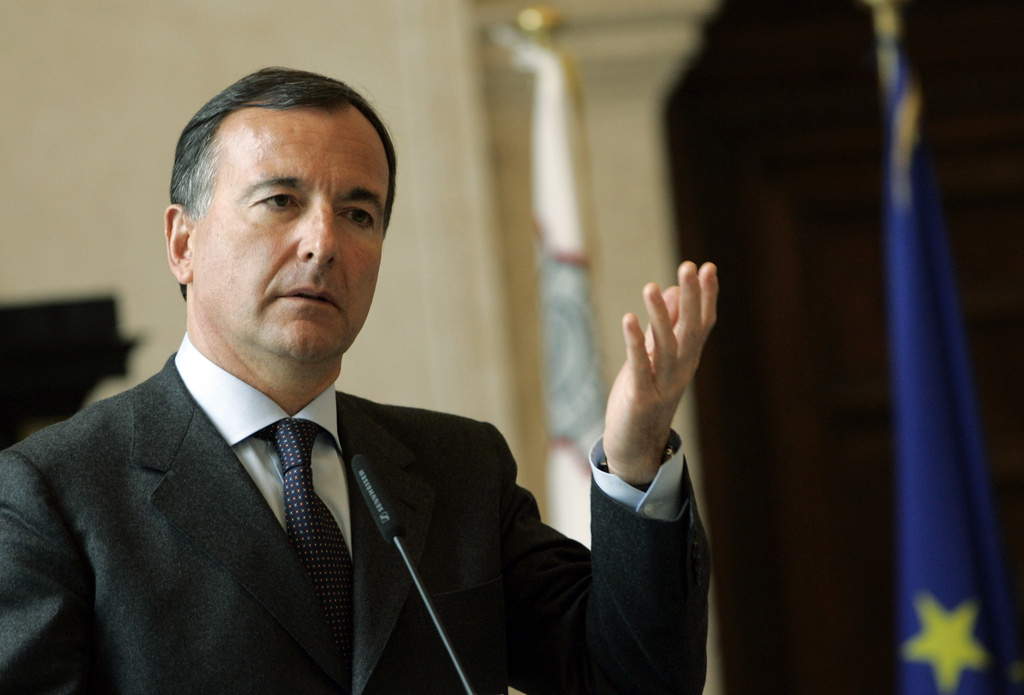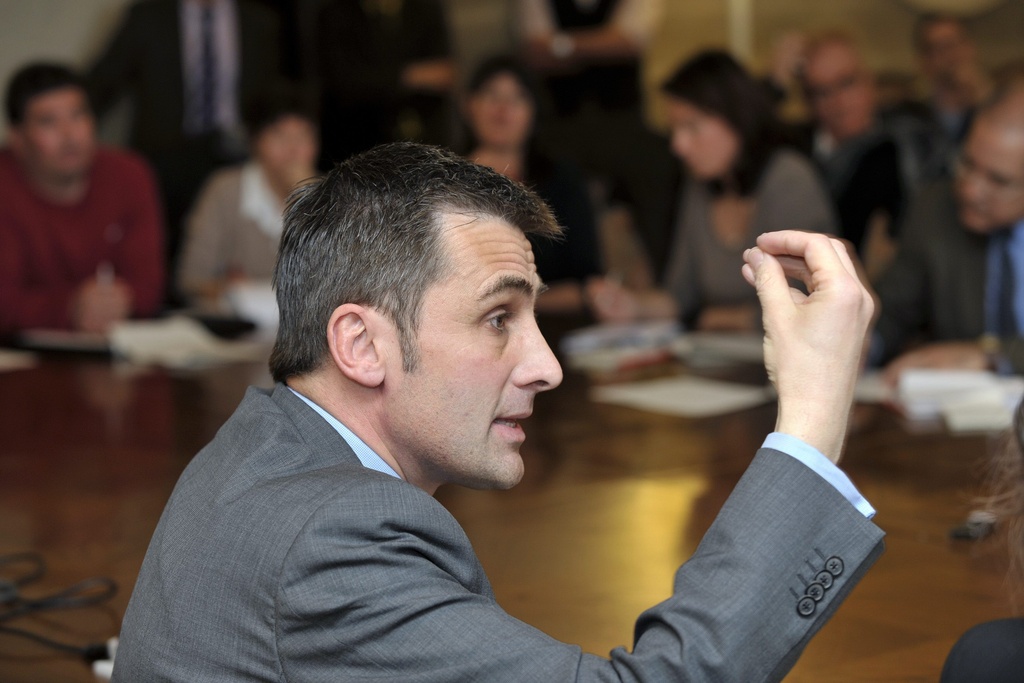EU to continue major role in Libya crisis

Days after the European Union effectively scuttled a plan to pressure Libya into releasing a Swiss citizen, the government will continue to lean on Europe to resolve the crisis.
EU officials say they are committed to securing the release of Max Göldi, an executive of engineering giant ABB, who was arrested in Tripoli in July 2008.
Cecilia Malmström, the European Commissioner for Home Affairs, said “lots of people were involved” in working on the issue. Guido Westerwelle, the German foreign minister, told a Swiss newspaper on Sunday that “Libya must release the hostage Göldi, and without delay”.
“The EU is supporting Switzerland in finding a diplomatic solution with Libya,” the Swiss foreign ministry told swissinfo.ch. “We consider the Union’s role as a mediator as very important in order to reach our central objective: the safe return to Switzerland of Max Göldi.”
Göldi’s lawyer, Saleh Zahaf, told swissinfo.ch in a brief telephone conversation on Tuesday afternoon he had no new information on his client. Göldi receives visits from Swiss consular officials every day except Fridays, the foreign ministry said.
On Tuesday human rights organisation Amnesty International demanded that the conditions under which Göldi is being held be improved. It said he was locked in a damp, windowless room with an unpleasant smell and no access to fresh air.
Göldi has roughly 12 weeks of a four-month prison sentence for immigration violations remaining, although Swiss and EU diplomats hope he will be allowed to return sooner.
Swiss authorities last Thursday scrapped a blacklist that prohibited top Libyans, including Gaddafi, from travelling unrestricted throughout Europe’s 25-nation Schengen bloc. EU leaders had been set to establish a workaround to the restrictions on April 5.
“A blow for Switzerland”
“This has been a blow for Switzerland,” said Annabelle Littoz-Monnet, an assistant professor at Geneva’s Graduate Institute of International and Development Studies and expert in European affairs.
The dispute, a seemingly tit-for-tat riposte to the arrest and brief detention of one of Libyan leader Moammar Gaddafi’s sons at a Geneva hotel, has thus far been marked by minor hopes and major diplomacy.
Libya over the weekend lifted a ban on visas for EU citizens, declared victory over Switzerland and Europe said sorry. Astrid Epinay, a professor of international law and vice-rector of Fribourg University’s Institute of European Law, says the EU and Switzerland have little left at their disposal.
She said the most important actors, apart from Switzerland and Libya, remained Spain and Germany. Spain hold’s the EU’s rotating presidency; Germany is a major trading partner of both countries.
Epinay was not sure what, apart from the skill of European diplomats – or presumably the empathy of the Libyan regime – might see Göldi released. “I think there are little means at their disposal,” she told swissinfo.ch.
Libya has basked in two high-profile apologies in half as many months. Before Europe deplored “the trouble and inconvenience” Switzerland’s ban brought upon Libyans, a high-profile spokesman in the US Department of State apologised after suggesting Gaddafi did “not necessarily [make] a lot of sense”.
Those comments came after the Libyan leader called for a “jihad” on Switzerland.
Liberalisation
Littoz-Monnet said there were also economic benefits: since 2008 the EU has been negotiating a partnership agreement with Libya, the last south Mediterranean country without such an agreement.
“I think it’s very important for the EU that this partnership agreement can be negotiated and signed in the near future,” she said.
The agreement would strengthen trade and investments between Libya and the EU and would be conditional on things like human rights and democracy. Libya could also be a valuable partner for Europe against terrorism.
Libya has the largest oil reserves in Africa and the ninth-largest in the world.
“The EU hasn’t been very supportive of Switzerland,” Littoz-Monnet said, but she argues much of its actions – including its apology to Libya – have been strategic.
She believes the rest of Europe is genuinely interested in the fate of Max Göldi. “On the other hand, I don’t think anybody’s extremely worried because his sentence is now for four months, so it’s going to end anyhow.”
Justin Häne, swissinfo.ch
Hannibal Gaddafi, the youngest of Moammar Gaddafi’s seven sons, has been involved in a string of incidents across Europe.
In 2001 he assaulted three Italian policemen with a fire extinguisher and left Rome on diplomatic immunity.
In 2004 he was nabbed by Paris police for allegedly driving his Porsche the wrong way down the Champs Elysées at around 150 km/h and running a red light. He was drunk.
Two months later Hannibal beat a model the same trip when she didn’t want to go back to a hotel room with him.
At a different hotel, police were called when he smashed furniture. He allegedly showed them a handgun.
French authorities were furious Gaddafi falsely claimed diplomatic immunity.
In July 2008, Hannibal and the woman he assaulted four years earlier in Paris – now his wife – were arrested by Geneva police for assaulting servants.
In December 2009 London police were called to a luxury hotel after screams were heard. Hannibal’s wife attributed her facial injuries to a fall.
This past New Year’s Eve, Hannibal paid millions to have US pop singer Beyoncé sing an hour-long set on the Caribbean island of St Barts.

In compliance with the JTI standards
More: SWI swissinfo.ch certified by the Journalism Trust Initiative












You can find an overview of ongoing debates with our journalists here . Please join us!
If you want to start a conversation about a topic raised in this article or want to report factual errors, email us at english@swissinfo.ch.